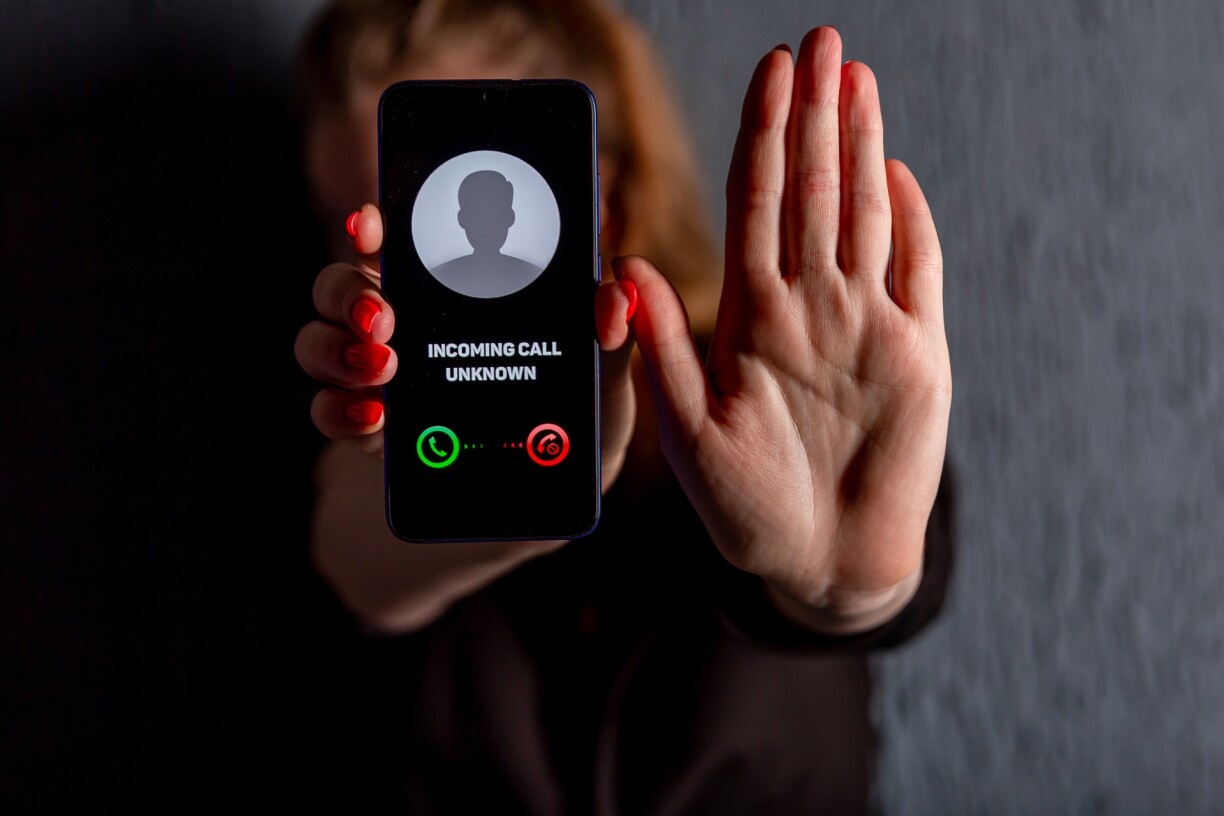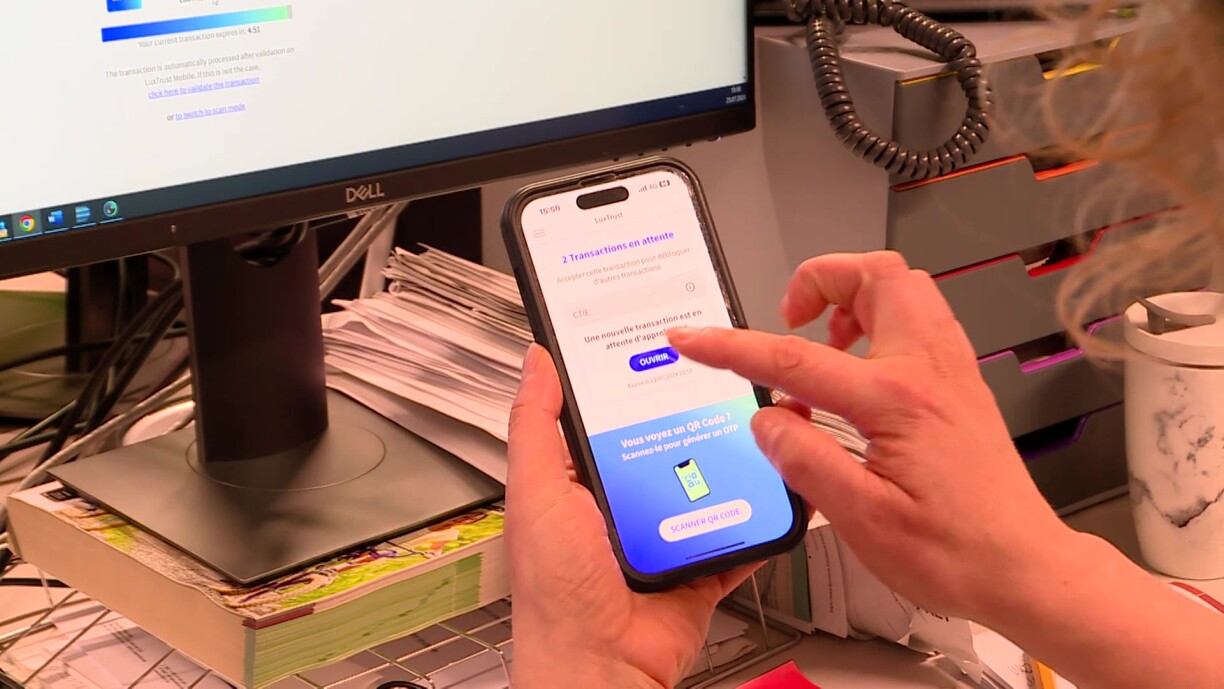
Scams, regardless of their form or effectiveness, share a common goal: to steal money from victims as quickly as possible. Over time, it has become easier to identify and combat scams; however, the emergence of newer technologies, such as translation software and artificial intelligence, has made them more sophisticated and challenging to detect, even in Luxembourg.
Read also:
Fraudsters use RTL, HGD Guillaume to promote crypto scam
One to two cases of CEO scams reported monthly, says cybersecurity agency
Deepfakes of Luxembourg politicians surface on YouTube
We spoke with experts from the Luxembourg Bankers’ Association (ABBL) and the police about the growing threat of scams that people may encounter online, via phone, or even by mail. Both groups agreed that scams are becoming more sophisticated, and this issue is likely to persist for many years to come.
Tim Pauly from the police highlighted that anyone, regardless of age, can fall victim to these schemes. He explained, “Scams are now so well-crafted that a brief moment of inattention is enough for someone to fall for them.” The presentation and language used in these scams are constantly evolving, with scammers posing as family members, LuxTrust, banks, the police, or even Europol. The pattern is often similar: they ask for money to be transferred quickly.
Pauly also stressed that no legitimate organisation, whether it’s a bank, hospital, or administration, will ever demand immediate money transfers. Ananda Kautz from the ABBL offered practical advice, stating, “Your bank or any public administration will never ask you to send private data via phone or email.”
Read also:Police warn of scammers posing as bank or LuxTrust employees
Many people who fall victim to a scam often wait too long before contacting their bank. “These scams are often conducted in the evening or on weekends,” explains Paul Wilwertz of the ABBL. “Many people wait until the day after or the week after to contact their bank.” However, help is available 24/7 by calling Worldline Financial Service’s helpline at 49 10 10. Initially, this service was limited to blocking cards, but collaboration between banks and authorities has expanded its scope. Now, assistance is also available for financial scams involving LuxTrust and other methods. “Even these connections can be blocked if action is taken quickly enough,” according to the ABBL. The police emphasise the importance of reacting as swiftly as possible.
Awareness of the scam threat exists at every level, and efforts are underway nationally, at the European level, and internationally to enhance communication and better protect citizens from these scams. Ananda Kautz points out that significant changes are on the horizon in the coming years. At the European level, new laws and regulations are being developed to facilitate the fight against scams and create more obstacles for scammers. The European Agency for Cybersecurity has launched the “Cybersecurity Awareness Month” to raise public awareness about scams. Interpol and Europol are also working on conventions and cooperation agreements to better apprehend criminals, many of whom operate from outside Europe, according to the police.

The approach used by scammers generally follows a familiar pattern: they apply pressure on the victim, either through threats, such as an urgent fine that needs to be paid, or by appealing to emotions, such as when a hospital allegedly requests money for a family member’s surgery.
If there’s any doubt about the legitimacy of a request, it is advisable to directly contact the relevant bank or authority. For instance, if a caller claims to be a banker and requests an urgent transfer due to outstanding debts, one should first call their own bank branch to verify the situation. Tim Pauly from the police emphasises, “A good indication that it’s a scam is if you’re being pressured to act quickly.” Neither the police, authorities, nor banks would ever demand immediate payment. Furthermore, passwords or codes should never be shared over the phone or via email, even if the person on the other end claims to represent a legitimate institution.
The LuxTrust token will cease to function starting December 31, 2024. Currently, about 85 percent of users have transitioned to the LuxTrust app, but some have yet to make the switch. According to the ABBL, this new system offers enhanced security, which includes the requirement of an additional password for access.
There are several other advantages as well. “It takes a little more time compared to the token,” says Ananda Kautz. “During that time, you can reconsider whether you really want to make this transaction or if it might be a scam.” The app also provides greater visibility into transaction details, allowing users to see the amount being transferred and the recipient. Those are features that were not available with the token, where users simply entered a code and completed the transaction without additional context.

At the ABBL, they recognise that not everyone owns a smartphone. “For those individuals, there are other devices they can use,” assures Wilwertz, which includes the LuxTrust Scan.
We all receive them: calls, texts, emails, and letters. No method is left untried, and according to the police, they encounter these issues several times a day. If someone falls victim to such a scheme, they shouldn’t feel ashamed. Instead, they should report it to their bank and the police to limit potential damage.
Currently, both the police and banks are focusing heavily on raising awareness and informing the public. “We work with the media, and you can also find the latest scams on the police website,” says Tim Pauly. He also says that if people discover a scam, they should check on the spot to see if it has already been reported. If it hasn’t, they should report it to the police. However, it’s best not to use the emergency hotline 113 for this purpose. Instead, individuals should contact the police via the email address contact@police.etat.lu or visit the nearest police station.
First, you should report the incident as quickly as possible to your bank or call the helpline at 49 10 10 to potentially block any transfers. After that, visit your local police station to file a complaint – do not call 113 for this purpose. When you go to the police, it’s best to bring all relevant evidence with you, such as account statements, a list of credit card transactions, and the phishing message itself. This information will help the officers create a detailed report of your complaint.
After reporting the incident, you can delete everything related to it and block the numbers or email addresses involved. If the numbers are from Luxembourg, you can also report them to your service providers, such as Post, Tango, Orange, and others.
Read also:
Luxembourg man recounts €30,000 loss to spoofing scam
Luxembourg police issue alert agains fake blackmail emails